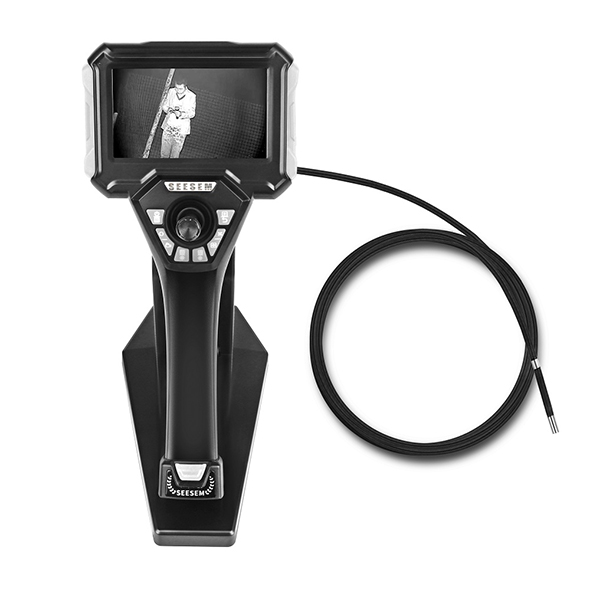Exploring the Versatility of Industrial Videoscopes
Vidéoscopes industriels, an innovative inspection tool, have gained prominence in various industries due to their ability to provide visual access to hard-to-reach or inaccessible areas. Dans cet article, we will delve into the wide-ranging applications of industrial videoscopes and their significance in ensuring efficiency, sécurité, and accuracy across industries.
Understanding Industrial Videoscopes:
An industrial videoscope is a flexible, fiber-optic or digital instrument equipped with a miniature camera at its tip. It transmits real-time video and images to an external monitor or device, allowing operators to view remote areas and conduct inspections without the need for direct physical access.
Applications dans tous les secteurs:
1. Aerospace and Aviation:
Industrial videoscopes are extensively used in the aerospace and aviation industry to inspect aircraft engines, éoliennes, et d'autres composants critiques. They aid in detecting defects, wear and tear, and foreign object debris (FOD) that can compromise aircraft safety.
2. Automotive Manufacturing:
In the automotive sector, videoscopes are employed for quality control during the manufacturing process. They enable inspectors to examine the interiors of engines, fuel lines, and exhaust systems for defects and ensure compliance with industry standards.
3. Oil and Gas:
Videoscopes are crucial for the inspection of pipelines, wellbores, and storage tanks in the oil and gas industry. They help identify corrosion, fissures, and blockages, ensuring the integrity of equipment and preventing leaks.
4. Manufacturing and Machinery:
Manufacturers utilize videoscopes to inspect machinery components, welds, and tight spaces for signs of wear or damage. This aids in predictive maintenance, reducing downtime and optimizing productivity.
5. Infrastructure and Construction:
In construction and infrastructure projects, videoscopes play a role in inspecting structural elements, plumbing systems, and electrical installations. They help ensure the safety and longevity of built structures.
6. Pharmaceuticals and Healthcare:
The pharmaceutical industry uses videoscopes to inspect sterile equipment, clean rooms, and laboratory apparatus. In healthcare, videoscopes are instrumental in minimally invasive surgeries and diagnosing medical conditions.
7. Energy Sector:
For power generation and distribution, videoscopes inspect turbines, boilers, and electrical panels. In renewable energy, they help maintain wind turbines and solar installations.
8. Security and Law Enforcement:
Videoscopes are valuable tools for security agencies and law enforcement to inspect suspicious packages, vehicles, and confined spaces. They enhance safety during bomb disposal and search operations.
Benefits of Industrial Videoscopes:
Non-Destructive Inspection: Videoscopes allow for non-invasive examination of critical components, minimizing the need for disassembly and reducing downtime.
Cost Efficiency: By enabling early detection of defects or issues, videoscopes help prevent costly repairs and extend the lifespan of equipment.
Safety: Videoscopes eliminate the need for personnel to enter confined spaces or hazardous environments, enhancing workplace safety.
Documentation: Many videoscopes allow for the recording and documentation of inspections, facilitating quality control and compliance reporting.
En conclusion, industrial videoscopes have revolutionized the way inspections are conducted across various industries. Their versatility, non-destructive capabilities, and ability to access remote or confined spaces make them indispensable tools for ensuring efficiency, sécurité, and accuracy in a wide range of applications. Alors que la technologie continue de progresser, we can anticipate even more innovative uses for industrial videoscopes in the future.


